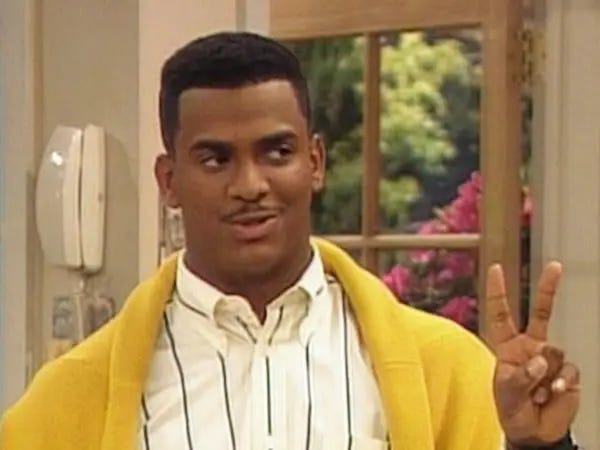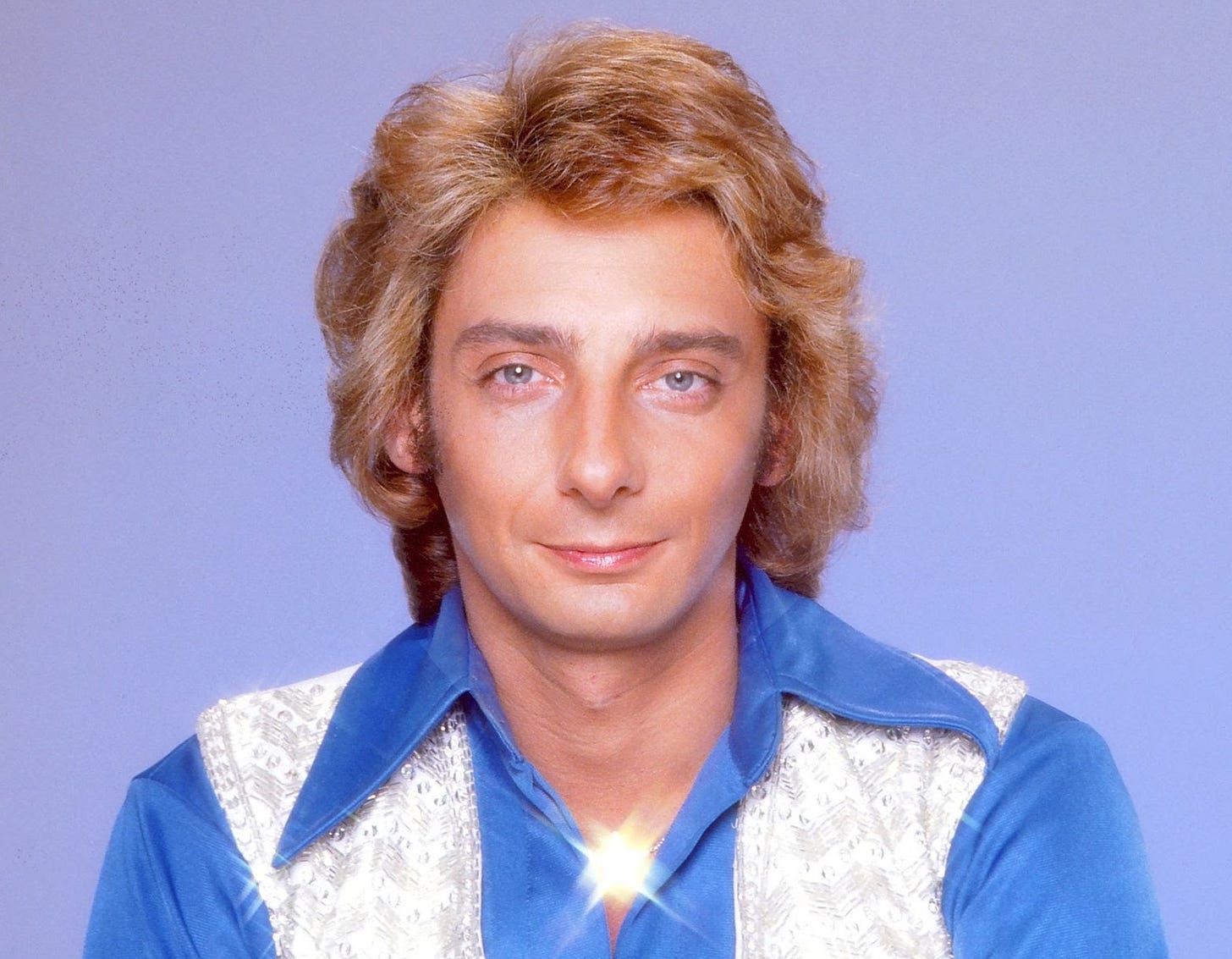Soapbox
ON BEING A “CARLTON”
Blackness in an age of racial orthodoxy
By Z.K. Paschal
You know what’s not a vibe? Being told you do not fit into a narrow definition of what other people think you should be. In fact, I’d say that can be pretty damaging and hurtful, especially when those definitions are just stereotypes.
Having read the title of this work, you know that I am now going to go on about “being a Carlton.” But, what does that even mean? For the purposes of this essay, “being a Carlton” is synonymous with “acting white.”

Acting white is supposed to be one of the worst things you can accuse a black person of—a form of “cooning.” The African-American History Museum, in a rather ill-conceived infographic, described whiteness as a series of behaviors such as being on time or having both parents in the home in some capacity. “Rugged individualism” was also categorized as white. Most, if not all of the traits ascribed to whites could also be attributed to Carlton Banks of The Fresh Prince of Bel-Air. While critiques are to be made with how far Americans have taken individualism, the fact that—like Carlton—I consider myself an individual first is apparently problematic.

Oh, no. There’s that word—problematic.
“Carlton” was an oft used epithet for Negroes like me when I was growing up. It’s out of vogue now, but it was utilized, usually by other Negroes to signal there was something odd about me and I wasn’t “blacking” right. It stems from a narrow view of “blackness” that is highly reliant on the idea that to be “black” is to be a supposed outsider to the broader American culture. Of course, this never made sense, as black (read: Negro) culture has always been central to American culture in some way and it certainly was when I grew up. Michael Jackson was at the height of his stardom when I was a kid. Black sitcoms ran the airwaves, too!
The view of blackness as something outside the mainstream posits the following:
Certain behaviors, hobbies, and interests are deemed “white” by the so-called black community. Whether or not they are actually niche interests, like Dungeons and Dragons.
If you’re “of color” and enjoy such things, you are “trying to be white” because said thing wasn’t made for you. You will have to twist yourself into pretzels just to fit in, thus you have to “try to be white.”
This “trying to be white” is an affectation in hopes of being accepted by white folk, making you a race traitor. Since whites are an enemy of sorts, this is a grave charge and is one reason good suburban boys sag their pants.
If you have these traits and are successful in any way, it’s because you “sold out” and you must now give up your black card. Success must be done the “black” way, whatever that means to the person calling you a coon.
Now, to address this nonsense.
First of all, my behavior, hobbies, and interests are not “white” just because some white folk have similar interests. I’d like to emphasize the word some here because many of my hobbies are nerdy. Nerd culture is highly populated by white folk but like most aspects of American culture, whites have never been the whole story.
That said, the fact is, I am not “trying to be” anything but myself. I’m just living my life, homie.
In regards to Carlton: he was a character who loved Barry Manilow and had signature dorky dance moves, one such move even bearing his name in popular culture. Carlton Banks is Will Smith’s silver-spoon-born cousin on the aforementioned show from the 1990s, The Fresh Prince of Bel-Air. Carlton was played excellently by Alfonso Ribiero.
Carlton was the type of kid that always did what his well-to-do parents told him to do. He was good at school and tucked his shirt in. He was the source of many hilarious moments—often at his own dorky expense.
Further, Carlton was fulfilling the archetype of the black nerd. Ignorant people concluded that this nerdiness was somehow a faux representation of himself or black people at large. This same trope is explored in the new Bel-Air which is on its second season. Bel-Air is a more dramatic representation of The Fresh Prince.
Carlton’s character was juxtaposed to Will Smith, the main character. He was everything that Will was not and Will often let him know about it. Will was more successful with women, sports and a number of other things that certain American Negroes hold to be most dear. They were enemies at times but grew a deep cousinly love. This was best displayed when Will stood up for Carlton in the episode where they were pledging at a black fraternity and the leader of the frat was making Carlton do everything at a much harder level than anyone else.
In the end Will was accepted and Carlton was denied for “not being black enough,” though it was phrased as Carlton being a “sell-out.” Upon hearing this news Carlton didn’t turn tail and run. Instead, he stood up for himself. It’s a powerful scene. The Youtube clip has over a lot of views and the comments are worth sifting through. While defending himself Carlton drops the line, “Being black isn’t what I’m trying to be, it's what I am.” While he didn’t have all the struggles that come along with poverty, he is just as black as any of the scraggly dudes in the frat. It’s the same with those of us who are like him, though as an adult I have more issues with the notion that we all have the same racial hurdles.
The thing is, Carlton showed grit in this scene. He had no issue admitting his tastes even though they were different. Apparently it wasn’t enough to gain their respect because he’s a “cornball” type. For modern day guys who fit that mold look at Russell Wilson or RGIII. They are criticized for being stable family men. RGIII had the audacity to marry a white woman twice.
Now, you can probably feel my side-eye from here. The frat scene from Fresh Prince is something I heavily identify with even though my background isn’t quite the same as Carlton. I wasn’t born into money, I was a pretty strong athlete as well as an academic. I moved so much I hardly had a place I could call home. However, I knew what he was fighting against. It’s the same battle I fought growing up.
Black folk like me have largely heard the same stuff: you’re not really Black, you’re an Oreo, or you “wanna be white.”
In reality the only thing that made me different from many black people is that I had not attached anything negative to my blackness. I saw few differences between my multicultural friends growing up. This made me a “Carlton.” However, even as a kid I never really understood why being a Carlton was particularly bad. At worst, he was just kind of goofy.
Still, like most boys I'd rather have been compared to Will because he was “cool.” Like most Americans I ended up being a fusion of so many things. That’s part of the Great American Experiment.
In the end this belief that a black person can be “acting white” is an insecurity in yourself and has nothing to do with me or others like me. In fact it stems from a similar sentiment found in po’ white folk who don’t like all that book learning. If me being me is a problem when I do nothing to you then it’s your issue, not mine.
Since white people make up the majority one would also expect the cultures within that group to be prevalent (but even then not all of the “white” cultures hold the same prominence here). Still, despite a majority white population nearly all of our popular culture has roots in black expression, particularly in music. Humans are always borrowing from each other and innovating.
This isn’t to say that sometimes there wasn’t outright stealing. But let's highlight the more important fact that we are all humans and we all come from dust. I’ve never met a happy person who was constantly focused on what was lost or what was done to whom. That's a snake eating its own tail which isn’t the sign of a healthy creature.
I wasn’t raised to harbor jealousy for white people. I knew plenty of white folk who were in worse straits than myself. I grew up in the black Baptist Church primarily and a majority of the kids I played with there were from well-to-do families. I had no reason to associate my skin tone with being less than.
My parents (mostly my mother if memory serves) did a good job of harnessing my voracious appetite for reading by giving me short biographies about famous black Americans like Matthew Henson, Bessie Coleman, George Washington Carver, and so on. I’m not going to lie and say I never had any identity issues or concerns with the outside noise. I also didn’t hold onto it for long nor was it related to some supposed superiority found in white skin. I’d suggest some of you get a little looser with your definitions of “black” behavior instead of acting like black Puritans who leave no room for differences.
I am not trying to game the system by being who I am. My successes and failures are a combination of what I am surrounded by, what I put into my own efforts, and what I accept or don’t accept for myself. We don’t live in a time where it’s that easy for a racist white person to keep me from being excellent. I’ve seen many people get along regardless of color and culture.
So, am I a “Carlton?” Sure and thank you for the compliment.
Z.K. Paschal is an American expat who lives with his wife and son in Japan, where he was born to parents who were in the military. An educator and musician, he has contributed non-fiction to Wrong Speak and is an aspiring writer of fiction as well. His first degree was in philosophy, a field in which he continues to dabble. He hopes to use his talents for good and is willing to write on nearly any topic upon the feeblest of provocations. Follow him on Twitter and check out his Substack and tunes.






This is so precise and fun to read, and I even thought you might be from my generation. You are my sons' generation and wrote generously, authentically and helpfully to pierce through the obnoxious stereotypes that still pervade the American psyche. My favorite line is that "no racist white person can stop my success". Yes!
Every time I see that condescending/racist infographic, all I can imagine is a group of white supremacists laughing at the success of their plot to have their rhetoric adopted as “progressive” via strategic plants in our “elite” institutions.